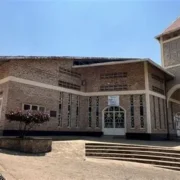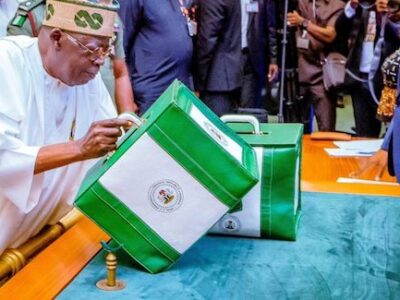KATSINA — The Katsina State government has unveiled plans to provide industrial tools for repentant bandits as part of a social reintegration initiative, alongside building 152 houses for displaced households in Jibia Local Government Area.
Governor Dikko Radda made the pledge during a high-level consultation meeting on security, governance, and development held on Sunday in Katsina, according to a statement signed by Commissioner for Information and Culture, Dr. Bala Zango, and the governor’s media aide, Maiwada Dammallam.
“The state government is planning to provide 152 IDP homes in Jibia for displaced families, plus business support packages, cattle, and industrial tools for repentant individuals to prevent a relapse into violence,” Radda said.
The governor reaffirmed that security remains the cornerstone of his development agenda, alongside education, agriculture, healthcare, MSME support, and revenue generation. He also noted his openness to constructive criticism.
Deputy Governor Faruk Lawal-Jobe highlighted the administration’s achievements under the “Building Your Future” policy, stating that 35,903 jobs have been created across multiple sectors, including teacher recruitment, ward head appointments, and the engagement of community watch members, vigilantes, hunters, and religious leaders in peacebuilding.
He further disclosed that the Katsina Urban Renewal Project covering Daura, Funtua, and Katsina senatorial districts cost N74.9 billion, with major infrastructure works such as the 24-kilometre Eastern Bypass, eight dualisation projects in Katsina town, rural road reconstructions, and other upgrades.
On education, the deputy governor said the government built 160 new classrooms, rehabilitated 258, trained 18,000 teachers, established three model schools, upgraded 152 schools under the AGILE project, and fully settled exam fees. Scholarships worth N6.18 billion were also awarded to 174,451 students, including overseas beneficiaries.
Agricultural interventions include distributing 400,000 subsidised fertiliser bags annually, procuring 400 tractors, providing 4,000 irrigation pumps, and launching the Goat Rearing Initiative for women and herders.
Lawal-Jobe also noted N24 billion in gratuities and wage awards for workers, Ramadan packages, civil service reforms, and large-scale food distribution.
Healthcare interventions include 260 ward-level primary health centres built or upgraded, renovations of general hospitals, establishment of a dialysis and diagnostic centre, a pharmaceutical production unit, and major international medical equipment donations.
The government further injected N14.6 billion into water projects, completed dams, converted hand pumps to solar-powered boreholes, and modernised land administration with a new masterplan, heavy machinery procurement, and N3.17 billion in compensation for affected landowners.
Energy sector gains include N3.84 billion worth of completed solar mini-grids, 74km of solar streetlights, restoration of high-tension power lines, and community-level transformer upgrades.
Meanwhile, Commissioner for Internal Security and Home Affairs, Nasiru Mu’azu, traced the roots of banditry to greed, envy, climate-induced natural resource conflicts, and longstanding social injustices. He revealed that banditry, once limited to five LGAs between 2011 and 2015, spread to 25 after the collapse of the state’s previous amnesty programme.
He stressed that current peace agreements in areas like DanMusa, Jibia, Batsari, Kankara, Kurfi, and Musawa were not initiated by the government but by communities themselves.




















Comments